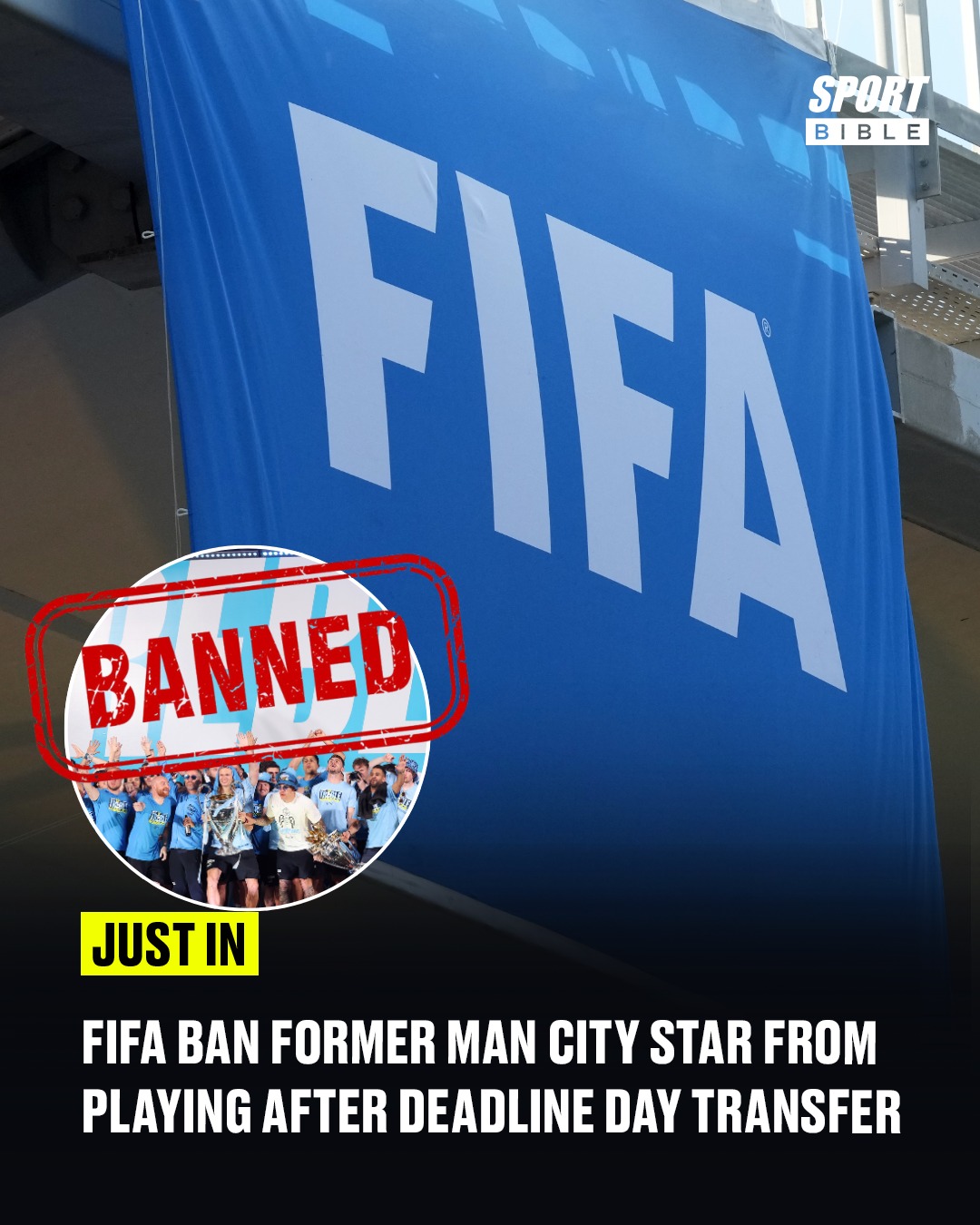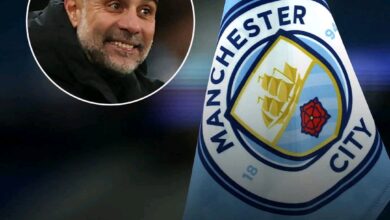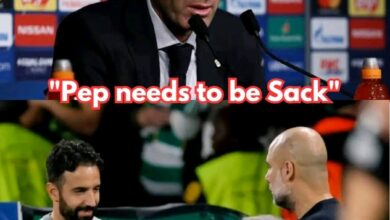FIFA Ban Ex-Man City Star From Playing After Deadline Day Disaster

The final hours of the European transfer window are traditionally filled with drama, last-minute negotiations, and frantic paperwork submissions. However, for former Manchester City defender Aymeric Laporte, what should have been a triumphant homecoming to Athletic Club has instead turned into a bureaucratic nightmare that threatens to derail his career plans for the next several months.
FIFA are poised to inform the Spanish international that he is prohibited from playing for his new club due to a critical administrative error that occurred during the chaotic final moments of deadline day. The mishap, which appears to have originated from his former club Al Nassr’s failure to submit crucial paperwork on time, has left one of Europe’s most accomplished defenders in an unprecedented state of limbo.
The Long Journey Home
Aymeric Laporte’s journey back to Athletic Club represents more than just a simple transfer – it’s a homecoming story that began years in the making. The 30-year-old defender, who rose through the ranks at the Basque club before his high-profile move to Manchester City in 2018, had been desperately seeking an exit from the Saudi Pro League since joining Al Nassr alongside global superstar Cristiano Ronaldo.
During his time in Saudi Arabia, Laporte made 69 appearances for Al Nassr, contributing to the club’s ambitious project that aimed to elevate the profile of the Saudi Pro League on the global stage. However, despite the lucrative financial package and the opportunity to play alongside one of football’s greatest ever players, the French-born Spanish international never truly settled in the Middle East.
Sources close to the player revealed that Laporte had been vocal about his desire to return to European football, particularly with his ambitions of representing Spain at the 2026 World Cup. The defender believed that playing in a more competitive league would better serve his international aspirations, especially given the depth of talent in Spain’s defensive ranks.
The saga of Laporte’s potential return to Athletic Club had been developing for months, with negotiations between all parties taking place behind the scenes throughout the summer transfer window. According to reports from transfer specialist Fabrizio Romano, Laporte had agreed personal terms and committed to a three-year contract with Athletic Club weeks before deadline day, demonstrating his unwavering commitment to the move.
The Dream Return That Almost Was
Athletic Club’s interest in re-signing their former academy graduate represented a perfect alignment of sporting and emotional factors. The Bilbao-based club, renowned for their unique policy of exclusively fielding players with Basque heritage, viewed Laporte’s return as a significant coup that would strengthen their defensive options while bringing back a beloved figure.
Under the guidance of experienced coach Ernesto Valverde, Athletic Club had enjoyed a remarkable campaign that saw them reach the Europa League semi-finals and secure fourth place in La Liga, guaranteeing their participation in the prestigious Champions League for the 2025/26 season. The prospect of facing elite European opposition, including Arsenal, Borussia Dortmund, Newcastle United, and defending champions Paris Saint-Germain, made the club an attractive proposition for a player of Laporte’s caliber.
The defender’s decision to prioritize Athletic Club over other suitors spoke volumes about his emotional connection to the club where he first made his professional breakthrough. According to Romano’s reports, Laporte turned down approaches from at least five other European clubs, some of which were offering more lucrative financial packages, in favor of his dream return to San Mamés.
This level of commitment from the player made the subsequent administrative failure all the more devastating for all parties involved. Athletic Club had conducted their part of the transfer process with characteristic efficiency, ensuring all documentation was properly prepared and submitted within the required timeframes.
The Critical Error
The root of Laporte’s current predicament lies in Al Nassr’s failure to complete their administrative obligations on time. According to reports from Spanish publication MARCA, while Athletic Club handled their responsibilities smoothly and professionally, the Saudi club failed to submit the necessary paperwork before the transfer window’s closure.
The specific issue relates to the International Transfer Certificate (ITC), a crucial document that must be processed through FIFA’s Transfer Matching System (TMS) for any international player movement to be officially recognized. This online platform serves as the global governing body’s central hub for processing all international transfers, ensuring proper documentation and regulatory compliance.
The TMS operates within strict timeframes that coincide with transfer window deadlines, and once the system closes, there is typically no mechanism for late submissions to be processed. This inflexible system exists to maintain the integrity of transfer windows and prevent clubs from gaining unfair advantages through delayed registrations.
Sources suggest that Al Nassr’s failure to submit the ITC on time was not due to any deliberate obstruction or attempt to prevent Laporte’s departure, but rather the result of poor internal organization and time management during the hectic final hours of the transfer window. However, the reasoning behind the error provides little comfort to Laporte, who now faces the prospect of being unable to play competitive football for several months.
FIFA’s Position and Precedent
FIFA’s stance on such administrative errors has historically been uncompromising, with the organization prioritizing the strict enforcement of transfer regulations over individual player circumstances. The governing body’s rules clearly state that all international transfers must be completed and properly documented within the designated transfer window timeframes, with limited exceptions for extraordinary circumstances.
Journalist Jose Felix Diaz reported that Athletic Club have been working tirelessly behind the scenes to “unblock the situation,” exploring every possible avenue to resolve the administrative impasse. The club’s efforts have included direct appeals to FIFA, requests for special consideration given the circumstances, and attempts to identify any procedural loopholes that might allow for Laporte’s registration.
However, according to El Partidazo de COPE, FIFA’s review of the case has concluded that no exceptions can be made. The organization is expected to formally inform Athletic Club that Laporte cannot be registered as a result of the late submission of the International Transfer Certificate and the closure of the Transfer Matching System.
This decision aligns with previous FIFA rulings in similar cases, most notably the collapsed transfer of David De Gea from Manchester United to Real Madrid in 2015. In that instance, technical difficulties and last-minute complications prevented the Spanish goalkeeper’s move from being completed on time, despite both clubs having agreed to the transfer terms.
The Broader Implications
The implications of FIFA’s expected ruling extend far beyond Laporte’s immediate playing future. For a player who harbors ambitions of representing Spain at the 2026 World Cup, missing several months of competitive football could prove catastrophic for his international prospects.
Spain’s national team boasts exceptional depth in central defense, with players like Pau Torres, Robin Le Normand, and Dani Vivian all competing for starting positions. Laporte’s absence from competitive action would inevitably impact his match fitness and form, potentially allowing competitors to establish themselves more firmly in the national team setup.
From Athletic Club’s perspective, the situation represents a significant sporting and financial setback. The club had built their defensive planning around Laporte’s expected arrival, particularly given their upcoming Champions League campaign. The prospect of facing Europe’s elite without their marquee signing could impact their performance in both domestic and continental competitions.
The timing of the error is particularly unfortunate given Athletic Club’s recent signing of Inigo Martinez, which had initially created uncertainty about Laporte’s potential role in the team. The resolution of this situation had been one of the factors that finally enabled Laporte’s move to progress, making the subsequent administrative failure all the more frustrating.
Legal and Regulatory Considerations
The Laporte case highlights broader questions about the flexibility and fairness of FIFA’s transfer regulations. While the organization’s strict enforcement of deadlines serves important purposes in maintaining competitive integrity and preventing manipulation, critics argue that punishing players for administrative errors beyond their control represents a disproportionate response.
Legal experts have suggested that Laporte could potentially explore options for challenging FIFA’s decision through the Court of Arbitration for Sport (CAS), though such proceedings would likely take months to resolve and offer no guarantee of success. The complexity of international football governance and FIFA’s broad regulatory authority make successful challenges to transfer-related decisions extremely difficult to achieve.
Alternative solutions being explored include the possibility of Laporte remaining technically registered with Al Nassr while being loaned to Athletic Club, though this would require cooperation from the Saudi club and approval from FIFA. Such arrangements are rare and typically reserved for exceptional circumstances, making their success uncertain.
Impact on Modern Football Transfer System
The Laporte situation serves as a stark reminder of the increasing complexity and risk associated with modern football transfers. The reliance on digital systems, strict deadlines, and multiple regulatory jurisdictions creates numerous potential failure points that can derail even the most carefully planned moves.
Football clubs increasingly invest significant resources in specialized transfer departments designed to navigate these complexities, yet even well-resourced organizations can fall victim to administrative errors or technical failures. The high-stakes nature of modern football transfers, where millions of euros and players’ careers hang in the balance, amplifies the consequences of such mistakes.
The case also underscores the growing influence of FIFA’s regulatory framework on individual player careers. As football becomes increasingly globalized, with players frequently moving between different continents and regulatory jurisdictions, the potential for bureaucratic complications continues to grow.
Media and Fan Reaction
The revelation of Laporte’s registration difficulties has generated significant media attention and fan reaction across Spain and beyond. Athletic Club supporters, who had celebrated the announcement of their former academy graduate’s return, have expressed frustration and disappointment at the turn of events.
The initial announcement of Laporte’s signing on La Liga’s official website and social channels, which was subsequently amended to reflect the registration difficulties, added to the confusion and disappointment surrounding the situation. This public back-and-forth highlighted the challenges facing football authorities in managing information flow during complex transfer situations.
Spanish media outlets have drawn parallels between Laporte’s case and other high-profile transfer failures, emphasizing the recurring nature of such administrative problems in modern football. The comparison to David De Gea’s failed Real Madrid move has been particularly prominent, given the similar circumstances and ultimate outcomes.
Looking Ahead
As the situation continues to unfold, all parties involved face an uncertain waiting period that could extend until the January transfer window. For Laporte, this means potentially missing the first half of the 2025/26 season, including Athletic Club’s Champions League group stage campaign and crucial La Liga fixtures.
The defender’s age and career stage make this lost time particularly significant. At 30, Laporte is entering the latter phases of his professional career, and missing several months of competitive football could impact both his immediate form and long-term prospects.
Athletic Club, meanwhile, must adapt their tactical and transfer planning to account for Laporte’s unavailability. The club’s Champions League campaign, which begins in September, will proceed without their intended defensive reinforcement, potentially requiring alternative solutions in the transfer market or adjustments to their existing squad.
Conclusion
The Aymeric Laporte transfer saga represents a cautionary tale about the complexities and potential pitfalls of modern football administration. Despite the best intentions of the player and his desired destination, a single administrative error by a third party has created a situation that threatens to derail carefully laid plans and aspirations.
As FIFA prepares to deliver its formal ruling, the football world will be watching closely to see whether any last-minute solutions can be found or whether Laporte will indeed be forced to wait until January to begin his second chapter at Athletic Club. Regardless of the ultimate outcome, the case serves as a reminder of the human cost of administrative failures in an increasingly complex and regulated sporting landscape.
The situation also highlights the need for continued evolution in football’s regulatory frameworks to better balance competitive integrity with fairness to individual players who become victims of circumstances beyond their control. As the sport continues to globalize and transfer values reach ever-higher levels, the pressure to refine and improve these systems will only continue to grow.















